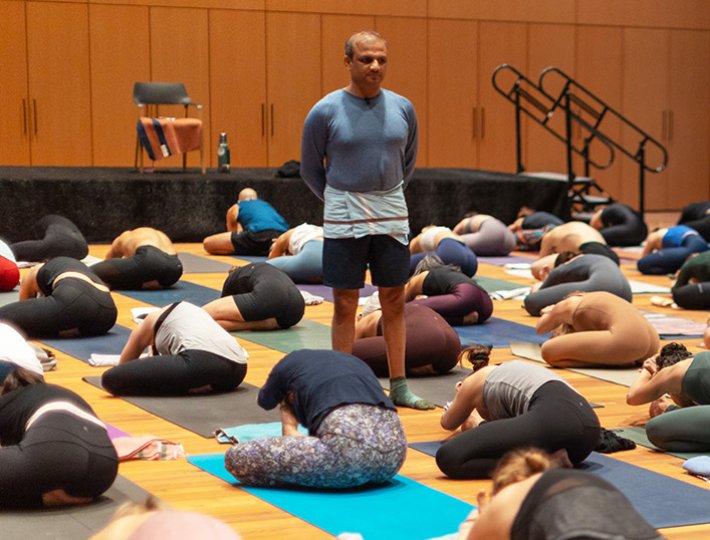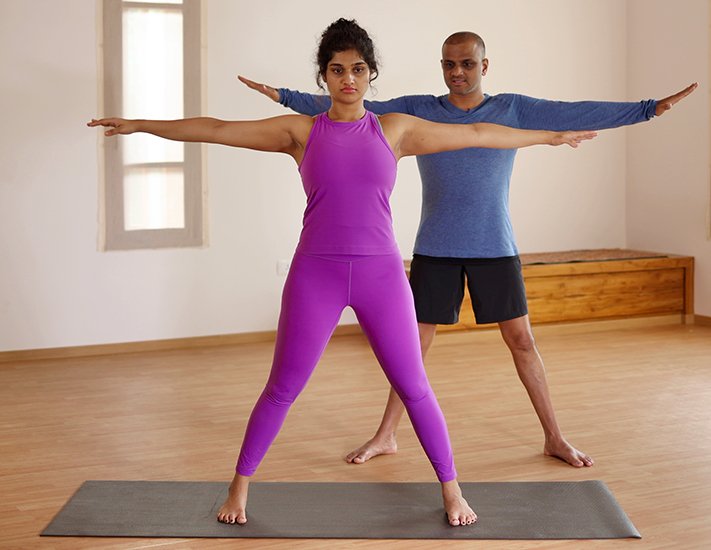This story isn’t meant to rag on Catholics. I grew up in the church. I’m a member of it still. Both of my daughters are baptized. So this isn’t about some sort of schism.
What it is about is how meditation and mindfulness helped me break free of some beliefs that, in my opinion, were unhelpful. They stemmed from my experience within the church, including seven years of Catholic schooling, nearly a quarter-century of weekly attendance at Mass, and many hours studying the Bible on my own. I’m by no means a theologian. The interpretations I made may have been wrong. But when I discuss them—and the outlook they instilled in me—with friends or acquaintances raised within the church, most of them know exactly what I’m talking about.
In fact, if you say the phrase “Catholic guilt” to anyone raised in the church it will immediately register. The phrase is so true of how many of us feel that it’s become a cliché. There are plenty of reasons for this. The church’s Sacrament of Reconciliation, a ritual in which you tell a priest about all your wrongdoings, is surely one. But for me, the most persistent and insidious sources of guilt stemmed from the Bible itself.
Certain verses in the Good Book describe thoughts as “evil” (Mark 7:20-23, Matthew 15:19-20), and assert that simply thinking them can be a sin (Matthew 5:28). The church took this idea and ran with it. Later, Catholic writings describe “sinful curiosity” as a danger (Baltimore Catechism, No. 257). It’s enough to make you believe that the mere impulse of thought can be a grievous wrong.
So here’s what happens to you (or at least me) when you go through life with that type of outlook. As you’re doing whatever it is you do most days, a random thought pops into your head that might be considered an unwholesome topic. Before you know it, you suddenly feel horrible for having had that thought. That second feeling—one of guilt, failure, and self-loathing—can persist for much, much longer than the first impulse. I liken it to overcorrecting while steering a boat. Something takes you slightly off course. To try and get back on course, you way overshoot the mark. You wind up spending more time going sideways than forward. That side-to-side motion is you, obsessing over your transgression and wondering what moral failing led that compulsion into your mind.
“The thing is, you are not in control of those thoughts,” says Mark Muesse, an associate professor of religious studies at Rhodes College in Memphis. “You did not make yourself have that thought.” Muesse is the author of several books, including the forthcoming Four Wise Men: The Lives and Teachings of Confucius, Buddha, Jesus, and Muhammad. He also created a lecture series on mindfulness and meditation that was seminal in my developing a daily meditation practice.
I know it will sound hyperbolic when I say this, but these five words from those lectures have changed my life: You are not your thoughts.
“It’s an insight that came to me while I was studying Hinduism and Buddhism,” Muesse says. “A great insight that the Hindus have is that the mind is a sense organ, like the eye or the ear or the tongue. It is a form of central experience. The mind senses ideas or thoughts just as the tongue senses tastes and the eyes sense sight. And just as you don’t have total control over what you see, what you hear, and what you smell, the same is true with your thoughts. They just sometimes happen. And you think, ‘Where did that come from?’”
When you start mindfulness meditation practice, you become intimately aware of how often the mind produces these thoughts—and how random they can be. A common meditation technique for beginners is to try and keep the mind clear of thoughts for 10 consecutive breaths. Whenever you find your mind wandering from the breath, you start over at one. Some people need months of practice before they can make it all the way to 10 (myself included).
Related: A Look at Meditation in Christian Traditions
What you begin to develop with this exercise is known as “witness consciousness.” It allows you to become more aware of your thoughts and emotions. With regular practice a profound thing happens: You discover separation between yourself and your thoughts. You realize that your mind throws a lot of ideas your way—some are great, some are garbage. When they’re garbage, you simply let them go.
This effect becomes even more pronounced off the mat, cushion, or whatever it is you meditate on. As your practice deepens, life stops being stimulus-response. You find space between the two. When something happens, you see it occur. But you also notice how your mind reacts to it. You then can decide: Do I want that to be my reaction? Or do I want to do something different?
For me today, having an ill thought is like stepping over a crack in the sidewalk—or passing by a log in the water, if we want to stay with the boating analogy. It doesn’t mean anything. You don’t necessarily have to do anything about it. When the thought comes, it’s simply: There it is. There it goes. We’re still on our way.
This shift has opened up so much more room in my life to be a better follower of Christ, at least in the “love one another” sense. I don’t dwell on bad thoughts. I just let them go. Freed from guilt’s mental baggage, I’m able to be more present and attentive to others. It’s much easier to help others with their needs when you’re not wrapped up in your own head, regretting wrongdoings that wandered in for a moment, but never actually happened.








Comments (0)